10 extraordinary mothers around the world
We celebrate the life-changing work of women who are changing the world for the better
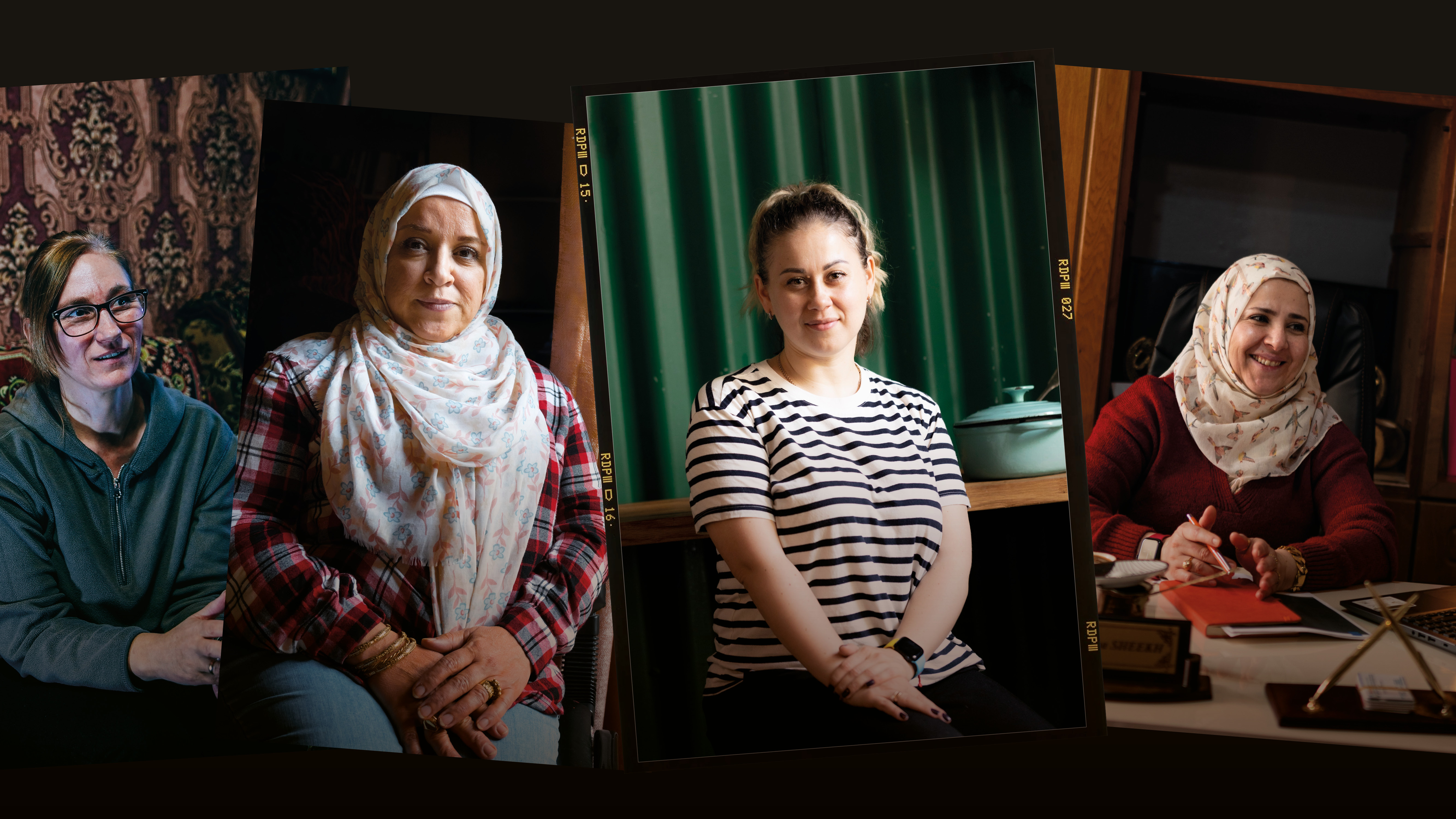

Women have always been at the forefront of change, shaping history with grace, resilience, and unmatched determination. From breaking barriers in the workplace to leading movements for equality, our influence stretches far beyond the boundaries of expectation. Yet, the true power of women often lies not only in what we achieve but in our ability to inspire, empower, and uplift whole communities.
As Women’s History Month draws to a close in tandem with Mother’s Day, we’re celebrating and showcasing the phenomenal work of mothers around the world, who persevere and pave the way for transformative work for themselves and the women around them.
Alongside ActionAid, we honour the strength and unwavering spirit of 10 women from across the globe, who are part of the charity’s partners’ projects, and celebrate their ability to transform the world. Here’s to the mothers, nurturers, the trailblazers, and the quiet heroes whose strength creates ripples of change that extend far beyond the home.
10 extraordinary mothers
Najlaa is the founder of Kareemat, Turkey’s first Syrian women-led organisation, a dedicated space for peace, security, and dignity.
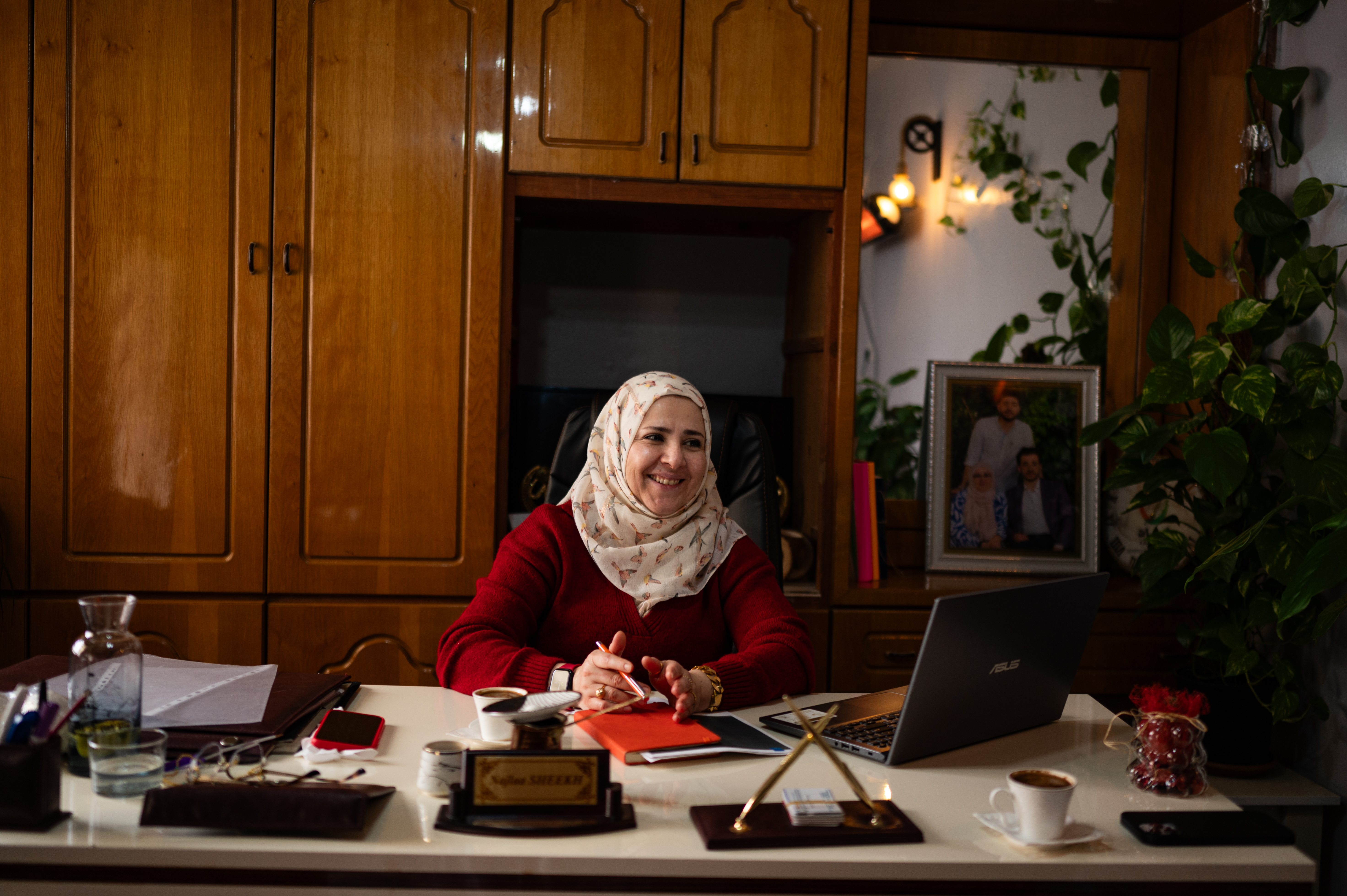
Najlaa Alsheikh, Founder and CEO of Kareemat, at the Turkey Syria Earthquake 1 year anniversary.
Najlaa, the mother of two young sons, built Kareemat, the first Syrian women-led organisation in Turkey, after fleeing Syria. Her husband was detained by the regime, and, following the barrel bombings in 2012, that devastated her community, Najlaa was forced to flee with her family with what she describes as only the clothes on her back. In Turkey, she created a safe space for women, giving them the means and training to support themselves and their families.
“In Syria, I was a Psychologist. For a long time after I arrived in Türkiye, I was suffering from PTSD, but I knew I had to stay strong and take care of my family,” she says. The most important thing for Najlaa is that Syrian women refugees have a “home away from home” where they can talk freely, feel safe and learn new skills. “All the women here feel like here is their home. Most of them had to leave families in Syria, and they’re alone here. That’s why they come to Kareemat every day and make breakfast together, talk about how they feel, what they're suffering from”.
“We are safe here. Here is like a haven because when people are with their family members, they feel like they are human, and we are all family.”
Doreen, originally from the Democratic Republic of Congo, took in orphaned children when fleeing war, and is now a community leader in Uganda.
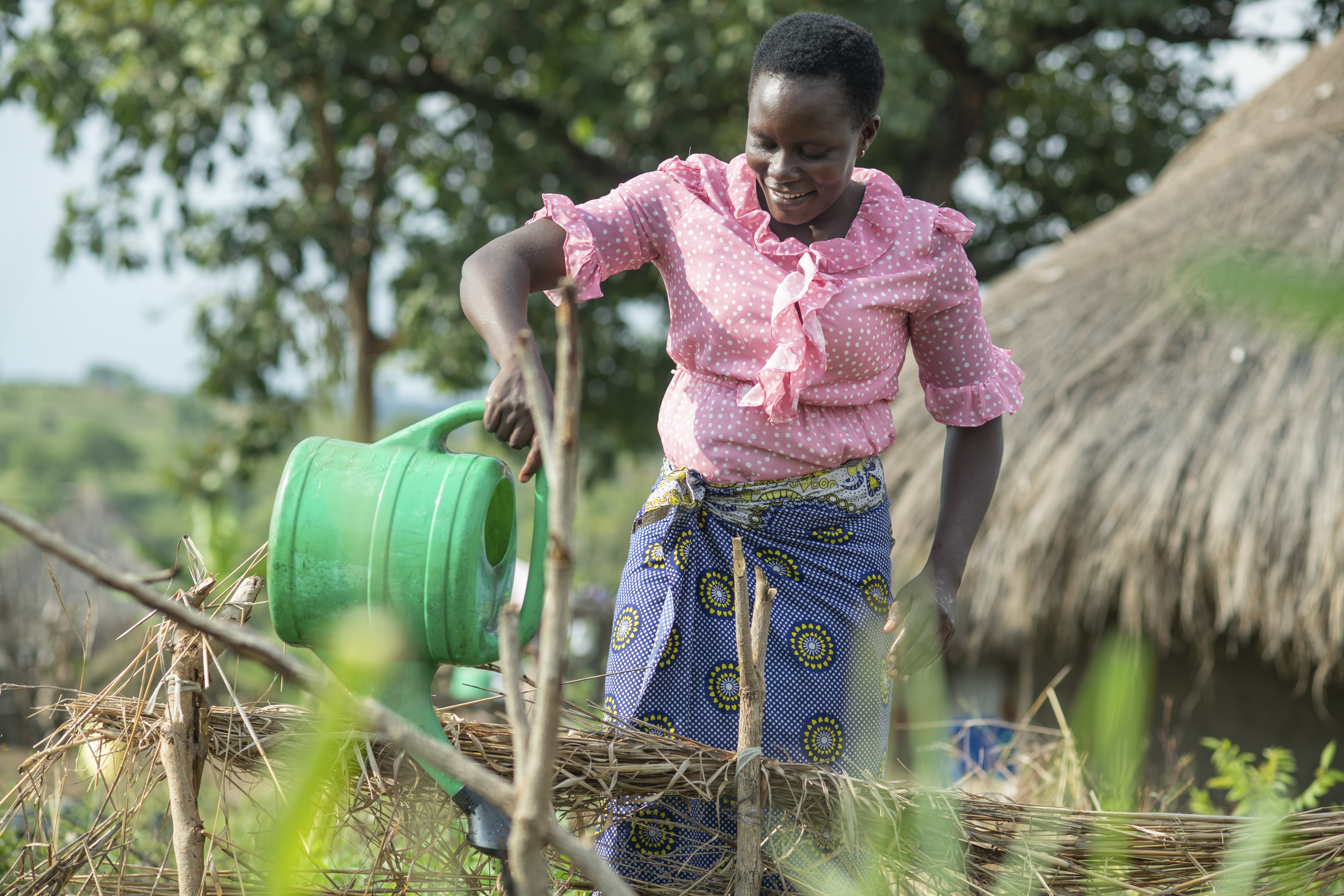
Originally from the Democratic Republic of Congo, Doreen fled her home in 2019 due to escalating violence. Her journey to Uganda was a harrowing nine-month trek on foot through dangerous conditions and her husband was tragically killed in the conflict.
Marie Claire Newsletter
Celebrity news, beauty, fashion advice, and fascinating features, delivered straight to your inbox!
Travelling alone with her four children, Doreen also took in orphaned children along the way, growing her family to 13. She said: “They are my children now. They don’t know where their parents are. Some of their parents died during the war. Now I am their everything.”
Once she reached Uganda, Doreen faced severe hardships, including food scarcity and inadequate shelter. After accessing training from the women-led organisation COTA, ActionAid’s partner in Uganda, she found her voice, advocating for her rights and the rights of others. Today, as a leader with the Refugee Welfare Council, Doreen works tirelessly to combat gender-based violence, promote women’s rights, and foster community unity. Despite the overwhelming challenges of resettlement, she empowers other women, urging them to take leadership roles and ensure their voices are heard.
“The changes I am fighting for... are not just for refugees, but for the betterment of the country we are in.”
Aisha was inspired by the loss of her son to fight and support other women
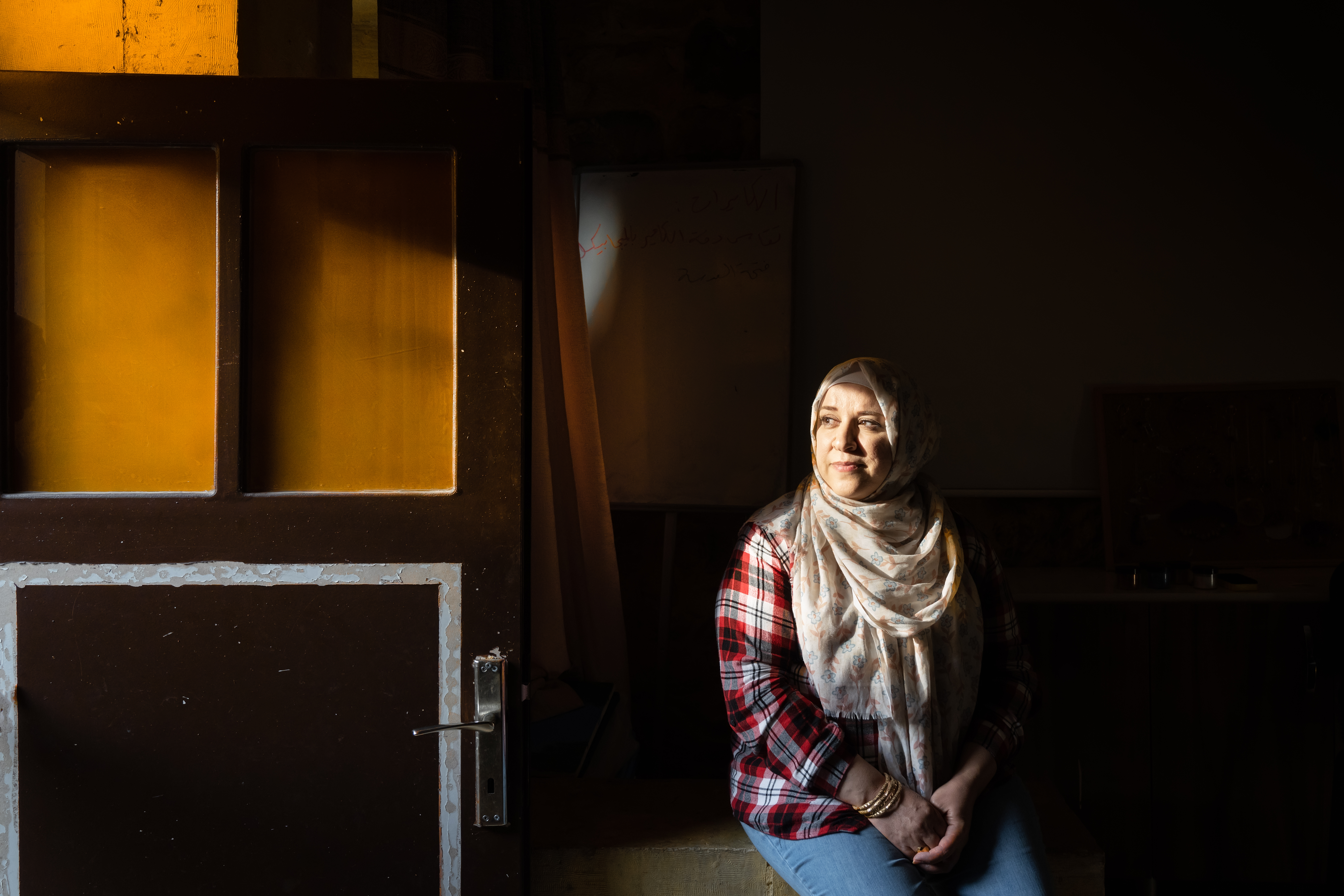
Aisha moved to Turkey after her son was killed fighting in Syria in 2016. Now, she is a Project Manager at Kareemat and is dedicated to helping more women.
Aisha’s journey to Turkey began after the devastating loss of her son, who was killed fighting in Syria in 2016. Arriving with her brother, husband, and two other sons, she struggled with grief and the challenges of starting over in a new country. One day, Aisha decided she needed to do something to give her a sense of purpose. She chose to learn Turkish and soon began supporting Syrian refugee women, helping them adjust to their new lives in Turkey.
Today, as a Project Manager at Kareemat, the first Syrian women-led organisation, Aisha is dedicated to empowering other women facing similar hardships. Though she has found a new community and purpose, she still dreams of returning to Syria to resume her work as an English teacher.
After the war, my heart broke after losing my son. My lovely son. I am a mother first of all. And I want to help all mothers in Kilis who are living here as refugees. We are suffering. We are tired. But we have to continue. Not for us, but for our children and our families.”
Doctor Fidaa is living and working as a humanitarian and caregiver of seven children while displaced from her home in the north of Gaza
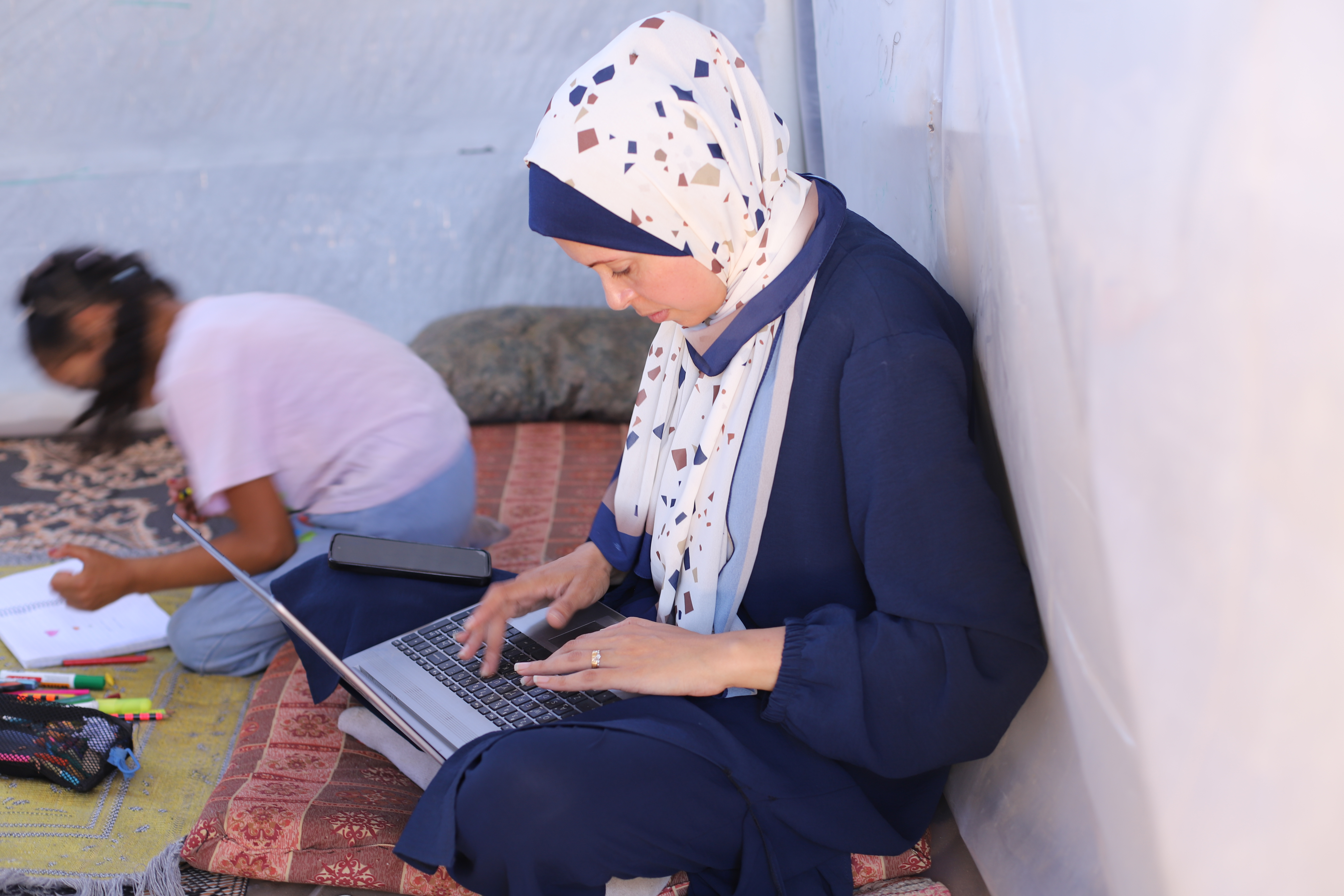
Doctor Fidaa working from the tent she now lives in.
Dr. Fidaa is juggling the immense challenges of being both a humanitarian worker and a caregiver to seven children while displaced from her home in northern Gaza. After losing her husband in an attack on an UNRWA shelter, Dr. Fidaa’s family was forced to evacuate seven times before finding refuge in a tented settlement.
Even as her family struggles with inadequate shelter, especially during harsh winters, and lacks essential items like food and medicine, she continues her vital humanitarian work. The tent they call home exposes them to the elements. She explains: “If the cold wind seeps inside the tent, I can’t cover all my children here with suitable blankets and mattresses.”
She faces daily obstacles—working without power to upload essential files, enduring long commutes by horse and cart, and coping with limited resources.
“As a humanitarian worker, I think the backbone of the work is the teamwork and solidarity, and the purpose which forces us to continue our work [which] is witnessing the needs of these vulnerable [people].”
Ira fled the war in Ukraine with her son and has had to build a new life for them both
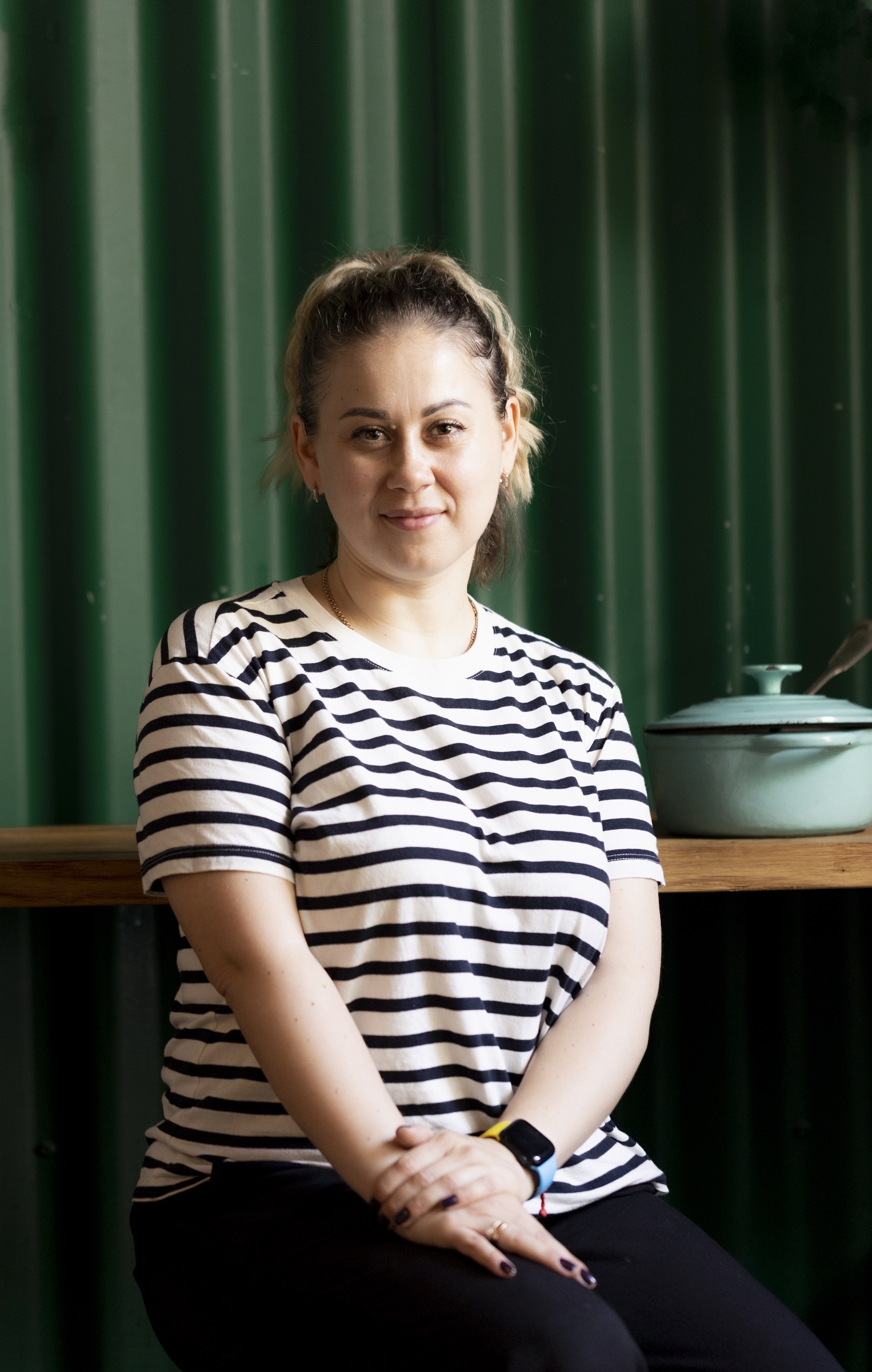
After the Russia-Ukraine war devastated her life and home, Ira, from Eastern Ukraine escaped with her five-year-old son to Poland. She says she has been overwhelmed by the kindness of strangers.
Ira, 34, found refuge in Warsaw after fleeing eastern Ukraine with her five-year-old son due to the devastating war. Encouraged by her husband, a border guard, to leave for safety, Ira spent her first three months in Poland with friends from Kyiv and now lives in an apartment graciously offered by a local resident. Despite everything, Ira has been deeply moved by the kindness of strangers—Polish and international alike.
Before the war, Ira didn’t interact with many people from different backgrounds, but at Kuchnia Konfliktu (Conflict Kitchen), an ActionAid-funded initiative, she met people from all over the world. She says, “We get to know people rather than be afraid of them.”
She now teaches Zumba at Baza, a partner community space that brings together refugees and marginalised groups, including LGBTQI+ communities. Her classes offer a place for connection and healing across cultures.
“Before the war, I didn’t understand what a refugee was. I couldn't understand who these people were. Now I'm a refugee I understand.”
Rama is training to enhance disaster response to fires, cyclones, and flooding.
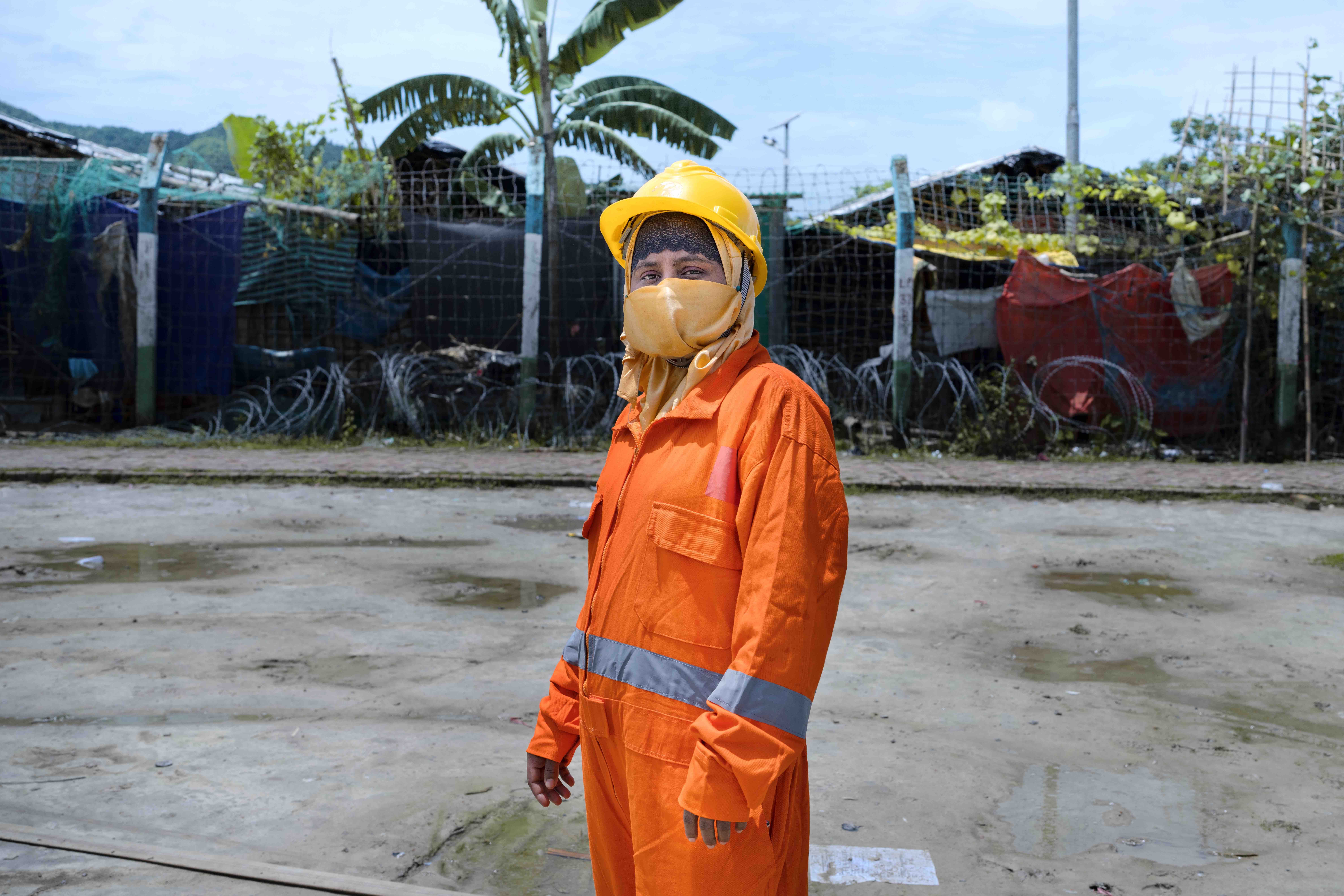
Rama is an ActionAid site management volunteer at Cox’s Bazar. She is training to keep the settlement safe by improving their response to disasters like fires, cyclones and flooding
Rama and her family arrived in Cox’s Bazaar in 2012 after fleeing persecution in Myanmar. Despite the trauma she endured from the violence in Myanmar, Rama remains an example of strength and resilience, inspiring her children and her community as she thrives in her mission to support and uplift them. “I like that I am working as a volunteer and doing something good for my community and people,” she says, adding: “Our community came here after experiencing trauma in Myanmar. Whenever I can do something for their good, I feel happy.”
“When I think about the future and the future of my children, I don’t always feel peaceful. I think about the girls and women here, and I fear for their future because they are growing up and there is no security in the camp. I wish the girls could access an education facility; there are some, but it would be better if there were more.”
Amina, ensures the safety of children playing near the settlement’s lake in Cox’s Bazar, Bangladesh
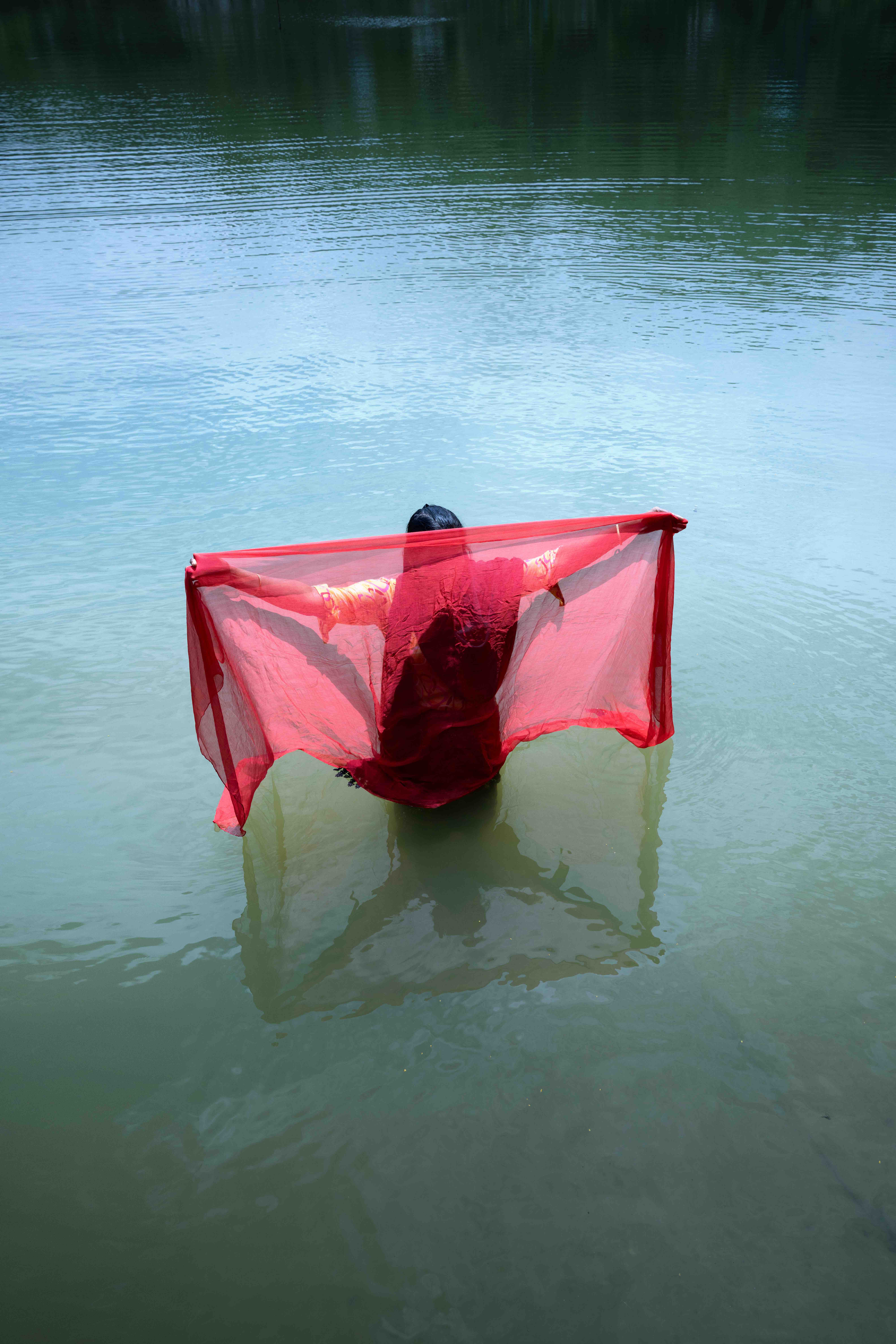
Amina works with ActionAid helping to keep the settlement at Cox’s Bazaar safe.
Amina fled persecution in Myanmar, seeking refuge in Bangladesh with her two daughters and two sons. Life in Cox’s Bazar was tough at first —robbers threatened her family, and without an income, Amina struggled to care for her children. Yet, she found strength in the face of adversity.
Today, Amina is a site management volunteer for ActionAid, earning a steady income while teaching other women about safety in the camp. Trained in cyclone preparedness, fire safety, first aid, and water safety, Amina’s most important role is as a lifeguard, protecting children from the dangers of nearby ponds and educating parents about water safety.
With her new job, Amina can provide her children with an education and the security she once feared they’d never have. Her dream is to empower other women in the camp, helping them create better futures for their families, just as she has done for hers.
“We make other women in the camp aware of cyclones, fire incidents, floods, diseases, and many things, by conducting session meetings with the women in the blocks. The women feel shy in front of men, and they do not want to meet men, but they do not feel shy in front of us.”
Lena, a deaf mum with a disabled son in Ukraine, is part of a committee for disabled people
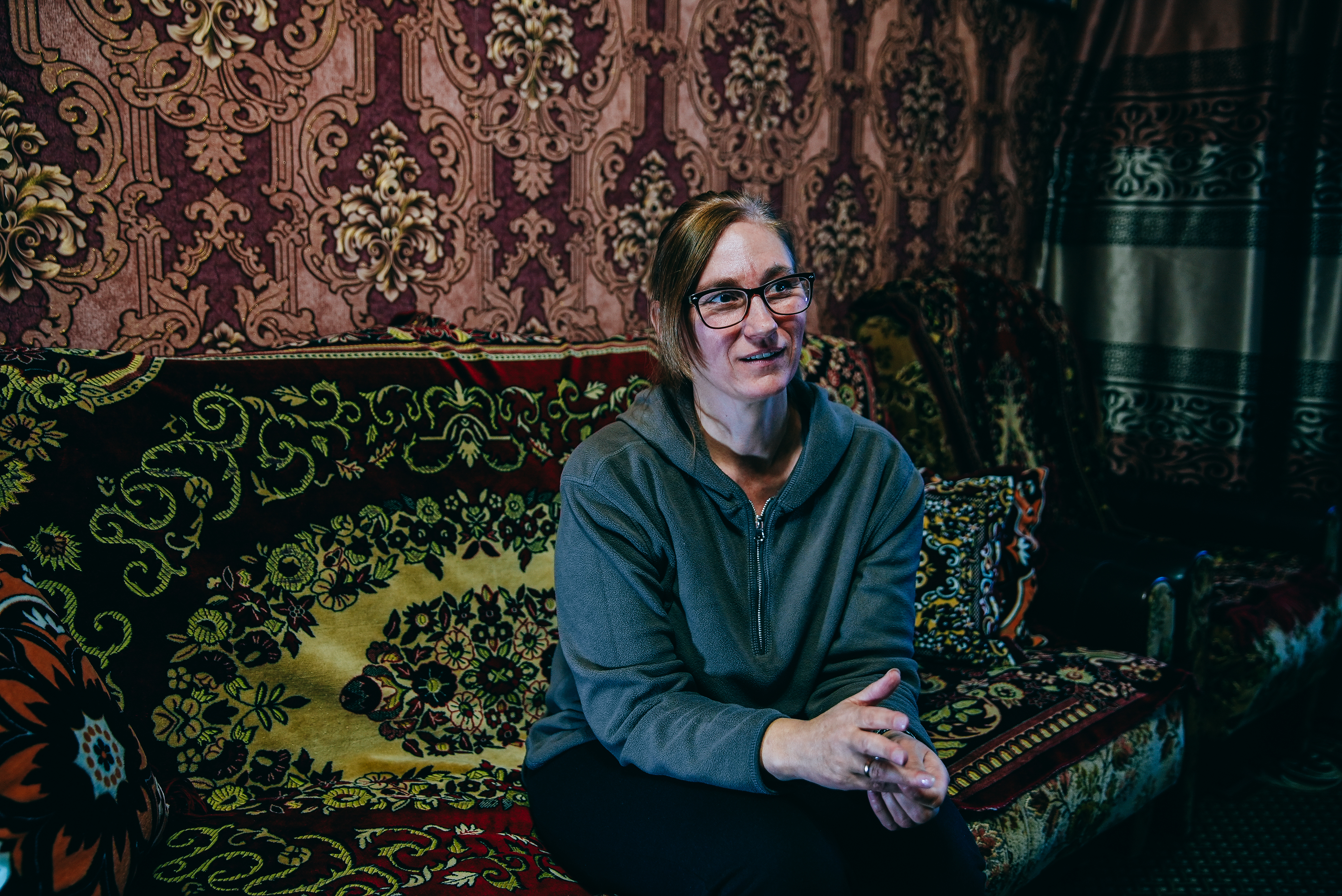
Lena (Olena) is a deaf mother with a child with severe cerebral palsy
Lena (Olena), a deaf mother from Chernihiv, Ukraine, faces extraordinary challenges while caring for her son Dima, who has severe cerebral palsy. During the three months of the war’s siege, they could not leave their home, trapped in a city under constant threat. With Dima bed-bound and unable to seek shelter during air raids, Lena’s world became one of constant struggle and uncertainty.
The war has only worsened conditions for people with disabilities. For Lena, the shortage of sign language interpreters—only two available in the entire region—has made basic tasks like medical visits or dealing with the bank nearly impossible. Power cuts further complicate communication, preventing her from charging her phone or watching the news to know when alarms go off.
Yet through the Protection Committee Initiative, a women-led community project supported by ActionAid, Lena and others in vulnerable situations have received support to address their most urgent needs, such as creating spaces for wellness and mental health activities and providing vital workshops on first aid and safety. Despite the hardships, Lena’s resilience shines through, as she continues to care for her son, advocate for her community, and fight for the resources she and others desperately need.
“I wish this war would end...people are tired. War is very scary. It needs to end and feel peaceful. This is one big wish.”
Kady, a fisherwoman from Maya, one of Senegal’s vanishing islands, has adapted to the challenges of rising sea levels in her village.
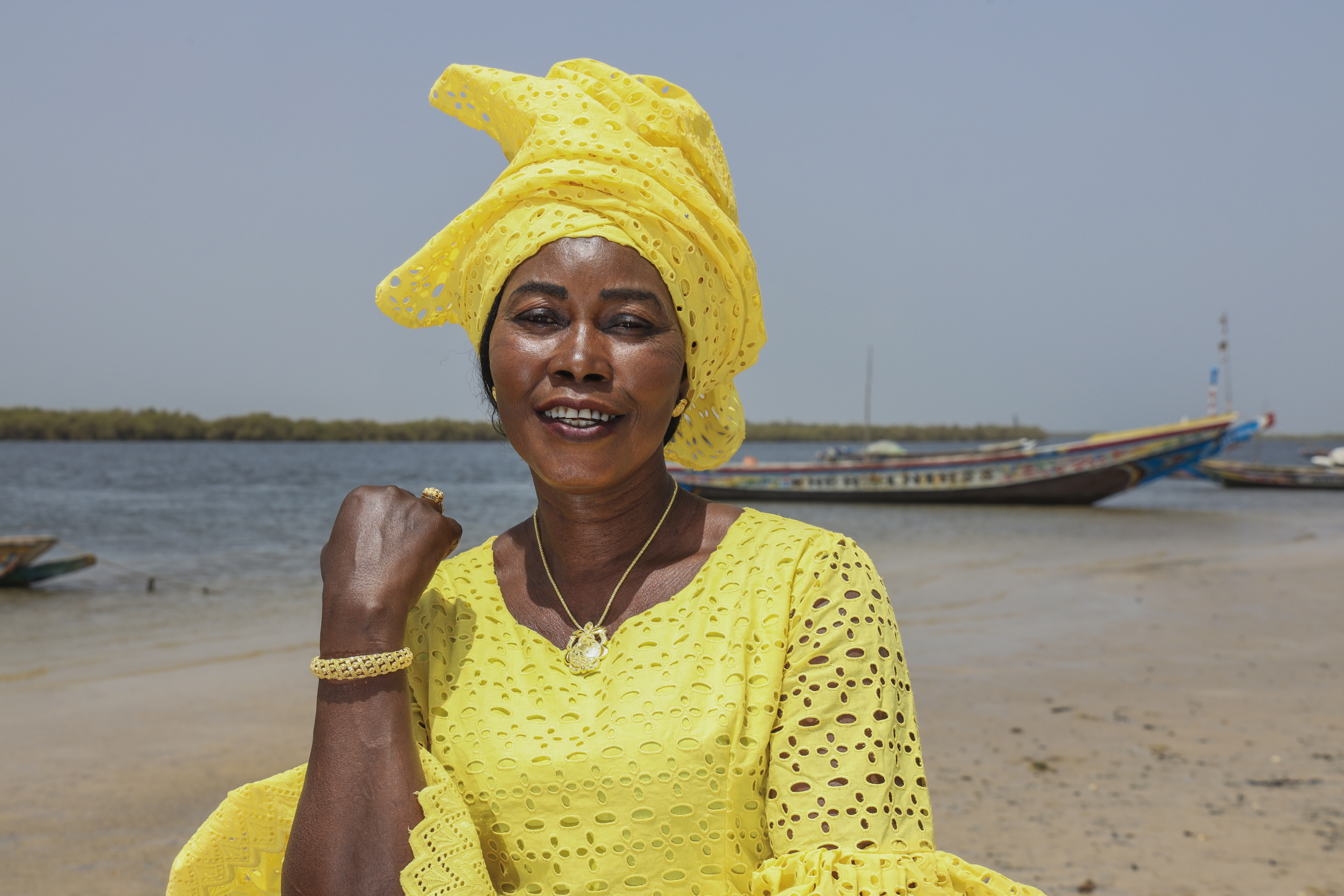
Rising sea levels have brought high tides that now reach many homes. As a result, Kady’s children had to move away from school, unable to endure the daily journey.
Kady and her local women’s group have worked tirelessly to create solutions for their community. Most of the women living on Maya Island used to earn a living by catching cockles, oysters and snails. So they started to gather up all the shells and place them on the waterways to be able to walk across the island and also for their children to be able to get to the secondary school on the neighbouring island of Djrinda. They have since built a more robust bridge to ensure their children can safely reach school.
Kalpana, 24, from Nepal, is a resilient leader in emergencies and a dedicated mother of two.
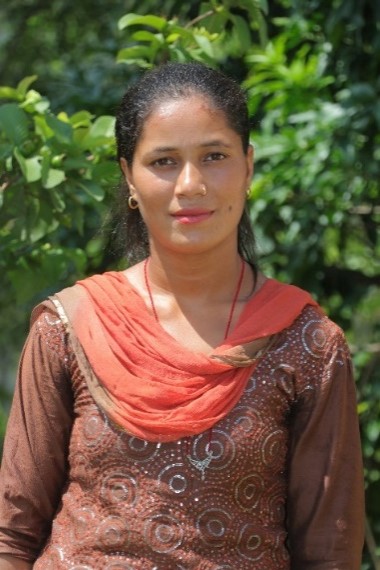
Kalpana comes from a marginalised community with simple farming background. Today, she has expanded her roles beyond being a farmer and a mother of two to become a passionate social worker, with a profound commitment to her community.
When a devastating earthquake struck Jajarkot and Rukum West on November 3, 2023, leaving destruction and loss in its wake, Kalpana faced personal hardship but refused to be overwhelmed.
With the support of ActionAid, KIRDARC Nepal, and other NGOs, Kalpana played a crucial role in organising relief efforts, ensuring aid reached those in need across Bheri Municipality. She also spearheaded the creation of a Women and Girls Friendly Safe Space in Thaple, offering a sanctuary for women to heal and find support.
Kalpana reflects on the personal losses she faced during the earthquake but finds fulfilment in her work. "I am very satisfied because I have done a good job," she said. Her efforts provided immediate relief, built essential support structures, and inspired other women in her community to join the recovery efforts. Alongside the relief efforts, Kalpana’s leadership encouraged women to advocate for their rights, becoming a powerful voice for the most vulnerable in her community.
Across the world, mothers are not only surviving adversity but are finding the strength to lead, build, and transform their communities. These women have the tools, skills, and knowledge to create lasting change—not just for their families, but for future generations. Their strength, resilience, and dedication to empowerment are proving that when we invest in mothers, women and girls, we invest in the future towards peace and security.

Mischa Anouk Smith is the News and Features Editor of Marie Claire UK.
From personal essays to purpose-driven stories, reported studies, and interviews with celebrities like Rosie Huntington-Whiteley and designers including Dries Van Noten, Mischa has been featured in publications such as Refinery29, Stylist and Dazed. Her work explores what it means to be a woman today and sits at the intersection of culture and style. In the spirit of eclecticism, she has also written about NFTs, mental health and the rise of AI bands.
-
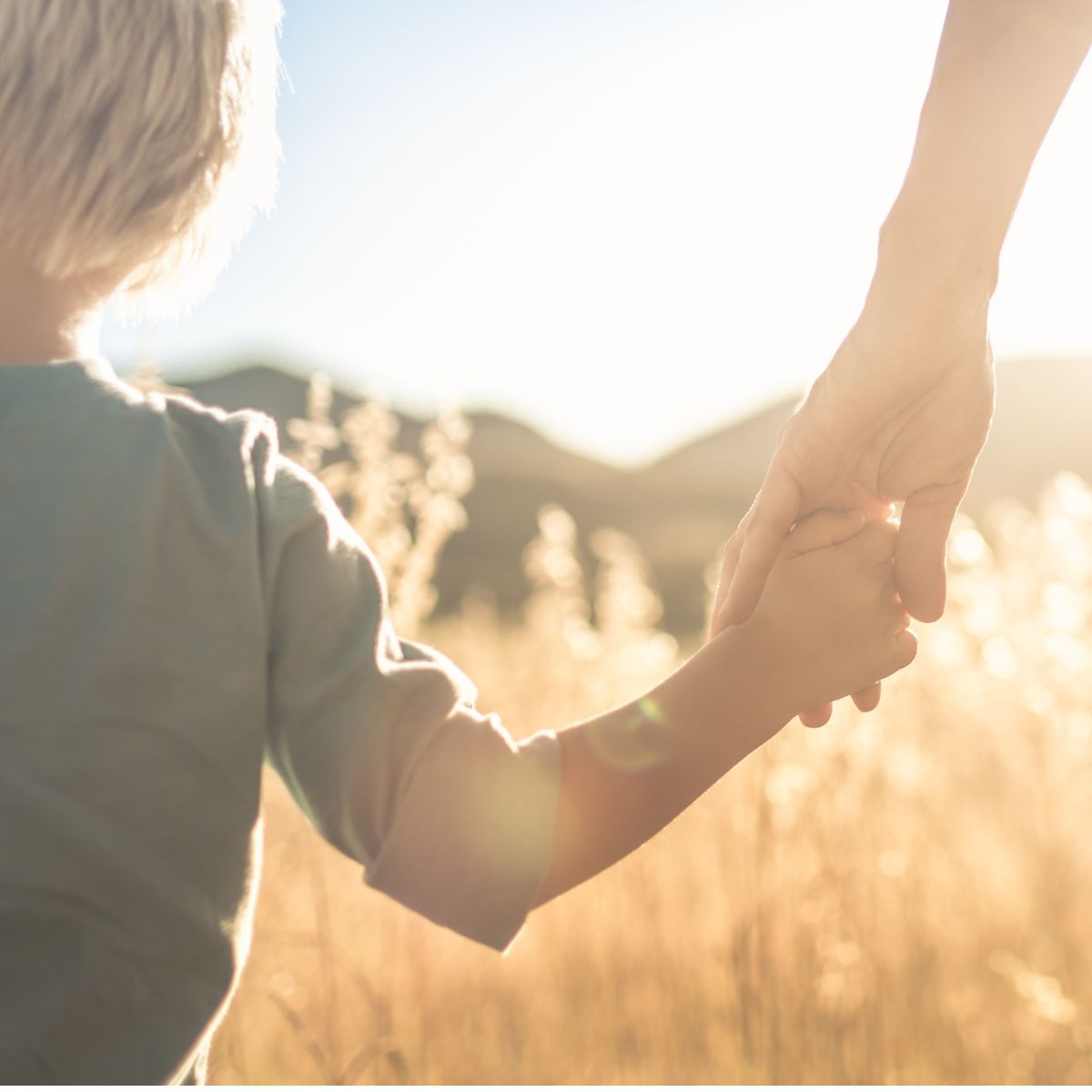 How Do We Raise Our Kids in a Time of Misogyny and Intimate Image Abuse?
How Do We Raise Our Kids in a Time of Misogyny and Intimate Image Abuse?“We tend to ask more of schools when we perhaps need to ask more of ourselves”
-
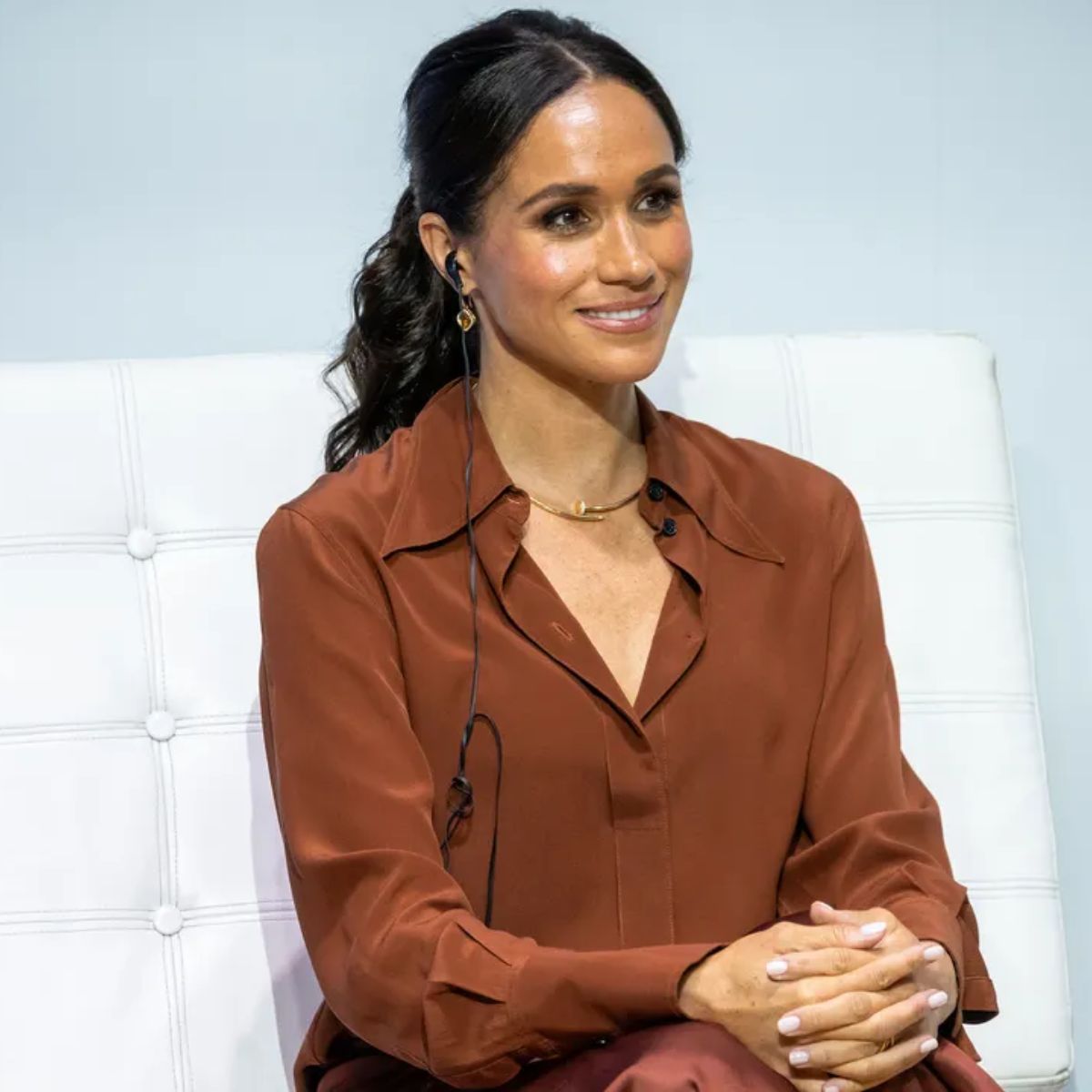 Meghan Markle's 'Montecito manicure' is *the* quiet luxury nail look and it's so easy to do at home
Meghan Markle's 'Montecito manicure' is *the* quiet luxury nail look and it's so easy to do at homeRoyally chic
-
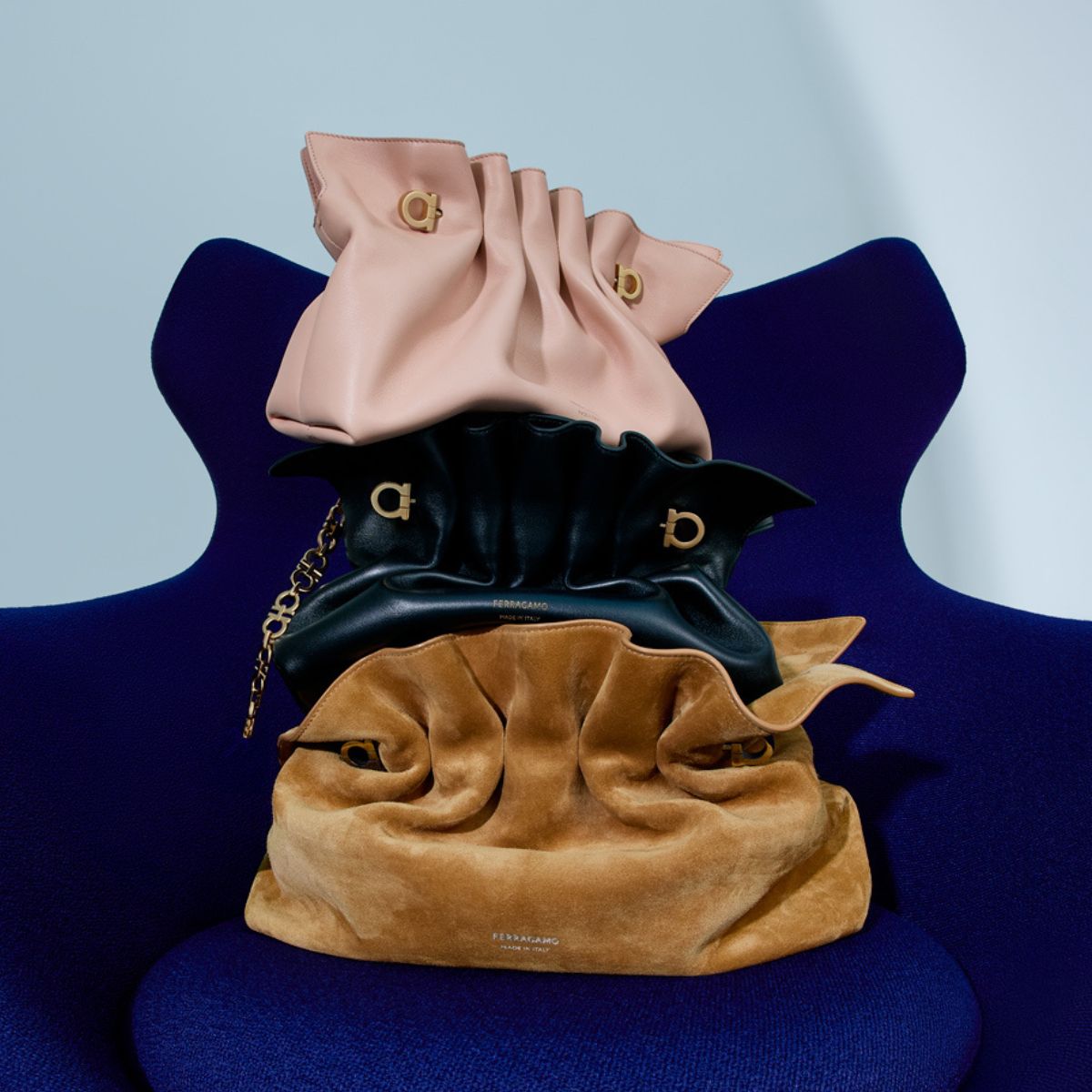 The One: Ferragamo’s Soft Bag Revives an Archival Classic
The One: Ferragamo’s Soft Bag Revives an Archival ClassicA classic go-to bag
-
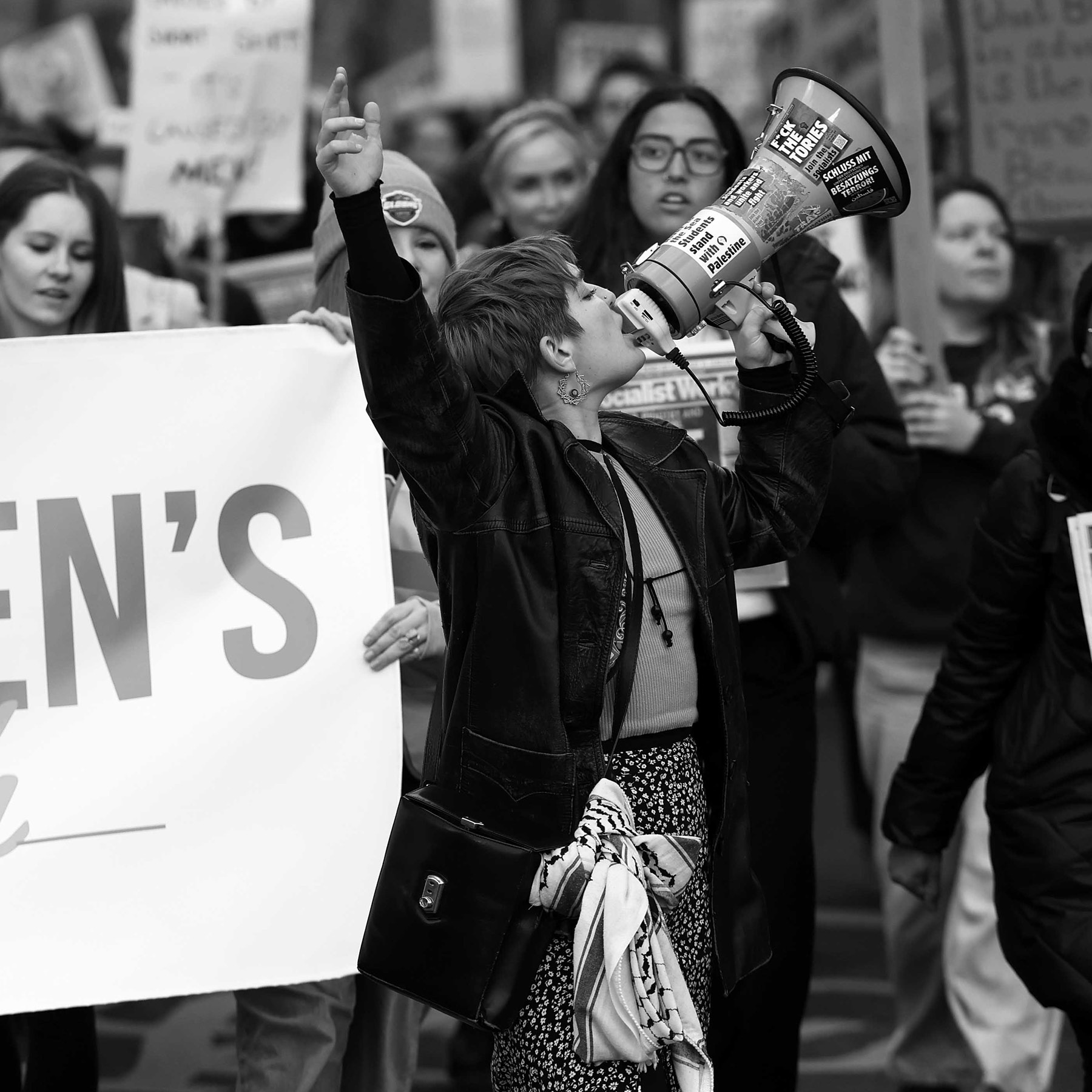 Inside The UK's Anti-Abortion Movement
Inside The UK's Anti-Abortion Movement -
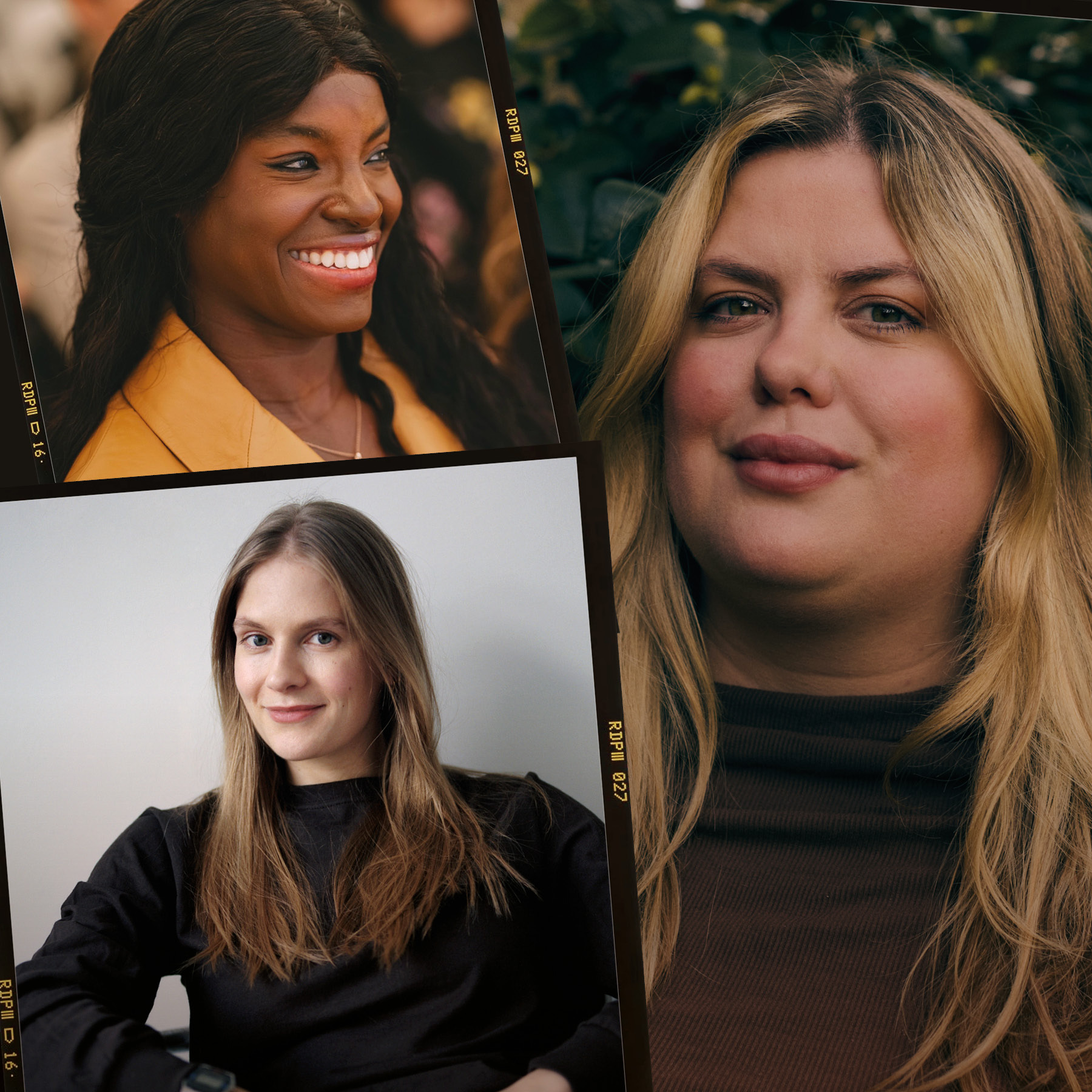 15 inspirational women on the action they want to accelerate this International Women's Day
15 inspirational women on the action they want to accelerate this International Women's Day"Never give up, never give up, never ever give up."
-
 Mind the wealth gap: why women still have less than men and what you can do about it
Mind the wealth gap: why women still have less than men and what you can do about itHow money has changed for women, the wealth gaps we need to close and how to do it.
-
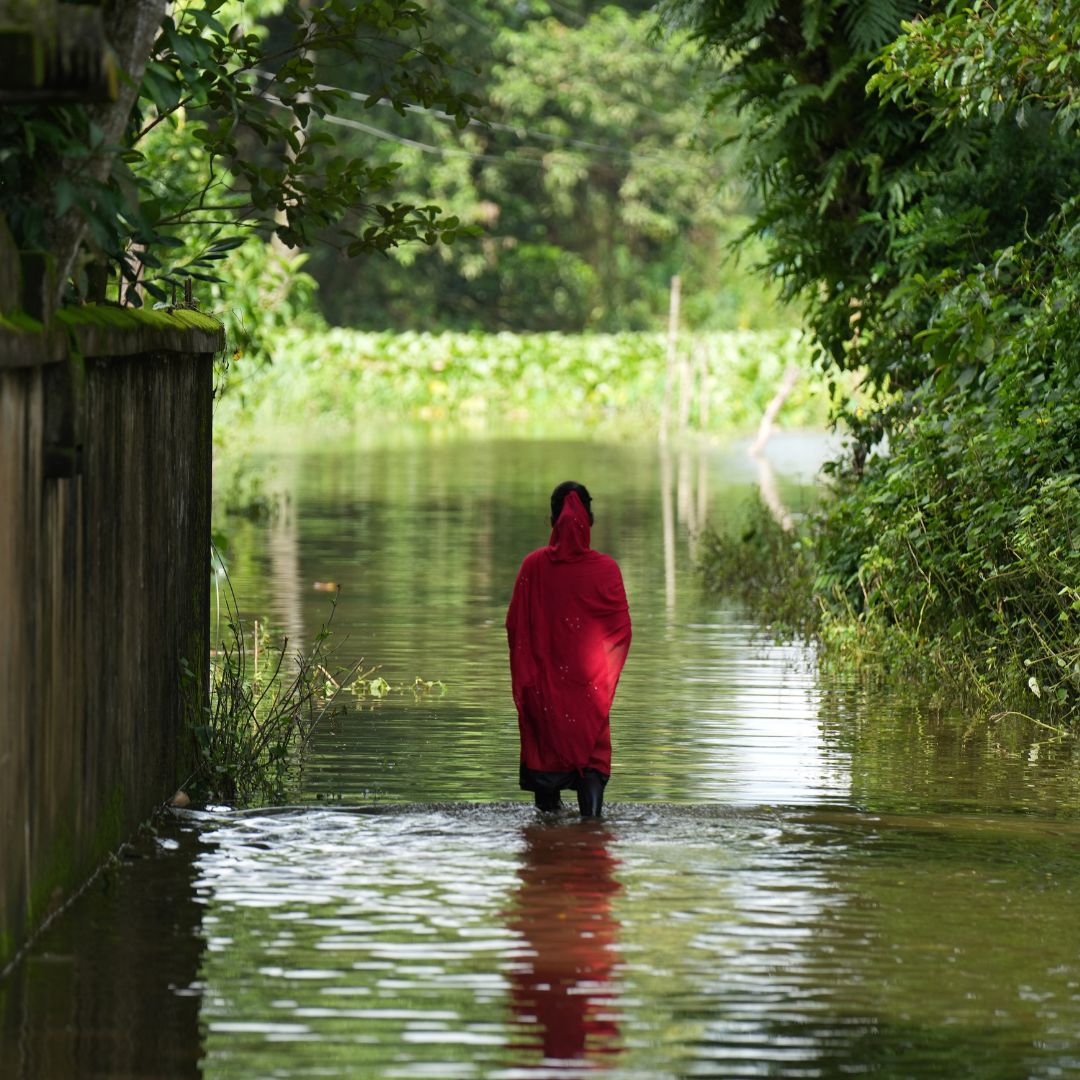 Women and girls are bearing the brunt of the climate crisis—they’re also leading the fight to solve it
Women and girls are bearing the brunt of the climate crisis—they’re also leading the fight to solve itWhy the climate crisis is a women’s rights crisis
-
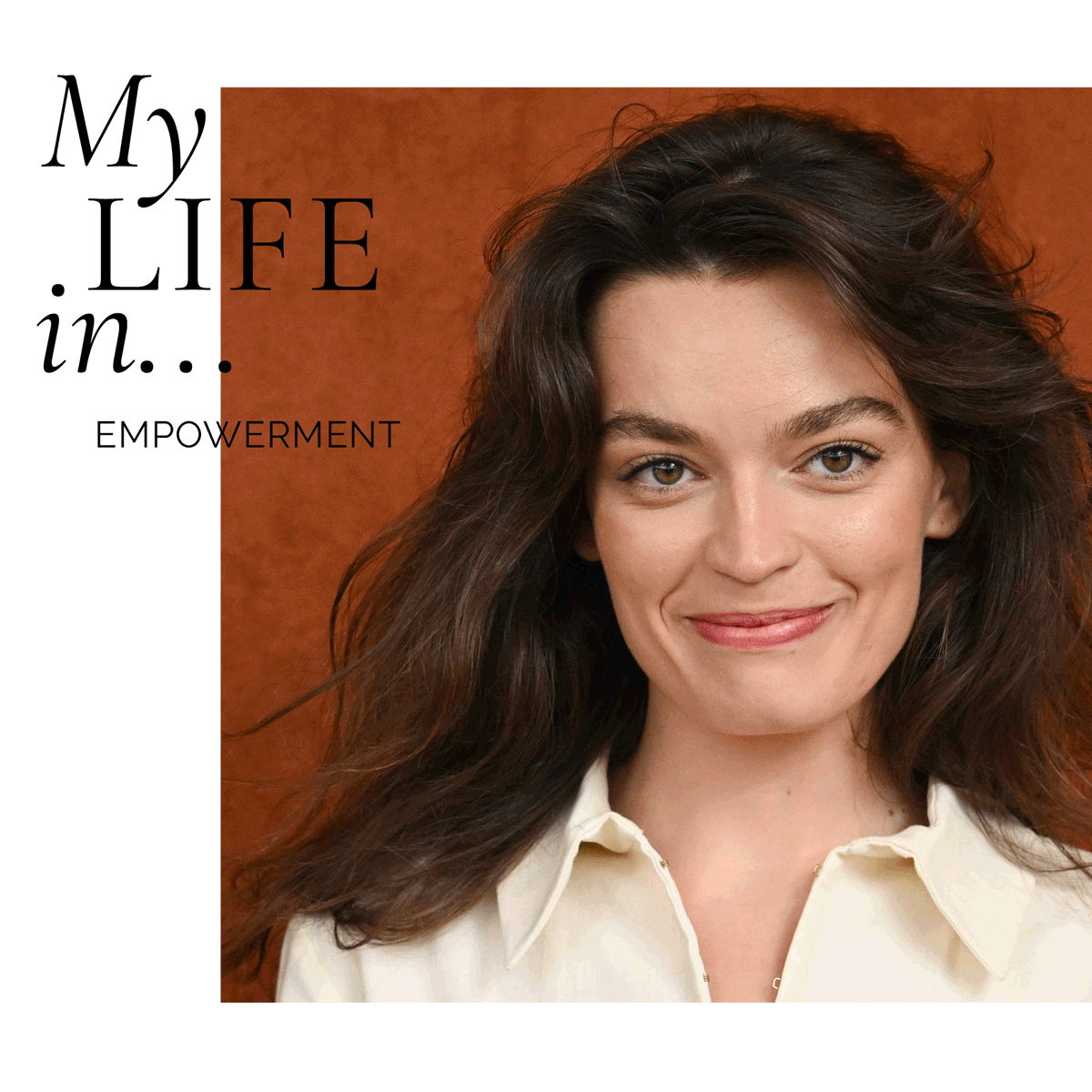 Emma Mackey has found her power
Emma Mackey has found her power“I don't think empowerment is something that can be cultivated individually; it's something that needs to be fed and nourished by other people.”